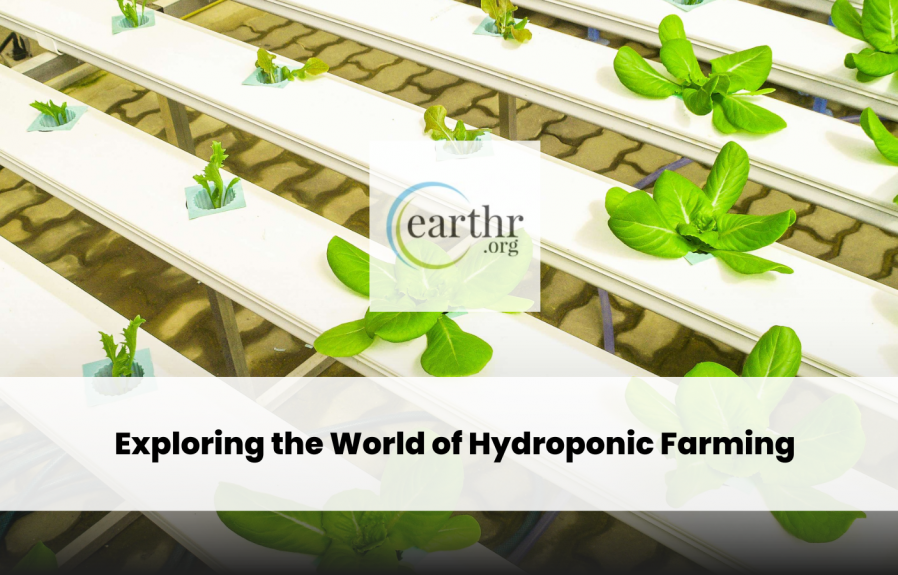Are you tired of eating the same old boring vegetarian dishes? Do you want to add a bit of excitement to your meals while also helping the environment? Well, have no fear! Hydroponic farming in cities is here to bring some fun and flavor to your lifestyle where traditional farming methods may not be that practical.
Now, let’s talk about why hydroponic farming is perfect for everyone. Firstly, hydroponic farming allows for a wider variety of plant options. In a traditional farm, the soil composition and weather conditions dictate what can be grown, limiting the variety of fruits and vegetables available. With hydroponic farming, almost any plant can be grown, making it easier to experiment with new and exciting ingredients in your dishes.
Hydroponic farming may sound like a science fiction term, but it’s actually a very real and very cool way to grow plants without soil. Yes, you read that right, NO SOIL! Instead, plants are grown in a nutrient-rich solution, which provides them with all the necessary minerals and vitamins. This method of farming is particularly well-suited to cities, where space is limited.
Secondly, hydroponic farming is incredibly resource-efficient. Because plants are grown in a nutrient-rich solution, they don’t need to expend energy on growing roots to search for nutrients in the soil. This means that they can grow more quickly and efficiently than plants grown using traditional methods. Additionally, hydroponic systems use less water than traditional farming methods, as the nutrient solution can be recirculated and reused. This means that you can enjoy your meals knowing that the plants were grown in a sustainable and environmentally-friendly way.
Thirdly, hydroponic farming is incredibly space-efficient, which is particularly important in cities where space is at a premium. Hydroponic systems can be installed in small areas such as balconies or rooftops, allowing you to grow your own fresh produce even if you live in an apartment. This means that you can have a mini-farm right in your own home, providing you with fresh and tasty veggies all year round.
So, what can you grow using hydroponic farming in cities? The options are almost endless! Leafy greens like lettuce, spinach, and kale are a great starting point. These plants grow quickly and can be harvested multiple times throughout the year. Herbs like basil, cilantro, and parsley are also great options as they add a lot of flavor to your dishes. Other options include cherry tomatoes, peppers, strawberries, and even mushrooms!
Now, let’s talk about how you can incorporate your hydroponically-grown produce into your vegetarian meals.
Here are a few fun and creative ideas to get you started:
- DIY Salad Bar – Set up a DIY salad bar in your home using all the different leafy greens and herbs you have grown. Add some nuts, seeds, and your favorite dressing, and you have a healthy and delicious meal in minutes.
- Veggie Pizzas – Top your homemade pizza with fresh cherry tomatoes, peppers, and herbs straight from your hydroponic garden. Not only will it taste amazing, but you’ll also impress your guests with your green thumb skills.
- Mushroom Burgers – Use your hydroponically grown mushrooms to make delicious vegetarian burgers. Add some lettuce and your favorite sauce, and you have a healthy and filling meal that will satisfy even the most ardent carnivore.
- Strawberry Smoothies – Blend your hydroponically grown strawberries with some yogurt and milk for a delicious and healthy breakfast or snack.
- Herb Infused Water – Add some fresh herbs like mint, basil, or cilantro to your water for a refreshing and flavorful drink that is perfect for hot summer days.
In conclusion, hydroponic farming is an exciting and innovative method of agriculture that is well-suited to urban environments. By making it possible to grow crops in small, resource-efficient spaces, hydroponic farming has the potential to transform the way we think about food and agriculture. As our cities continue to grow and space becomes increasingly limited, hydroponic farming may well be the key to sustainable, healthy, and resilient urban food systems.
Hope you liked learning about hydroponic farming from our blog post. We would like you to join our community earth.org where we talk about problems and solutions that can make our Earth a better place to live. Join us today to create an impact.



